Craig B. Webb, PhD, DVM, DACVIM
Articles by Craig B. Webb, PhD, DVM, DACVIM
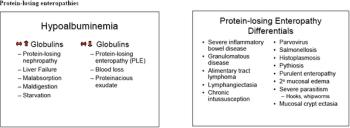
Although the combination of hypoalbuminemia and hypoglobulinemia is "textbook" for a protein-losing enteropathy (PLE), it should be noted that a normal, or even elevated globulin level should never be the only reason to take PLE off a list of differentials that was generated by a history and physical examination.

Disorders of the esophagus include inflammation (esophagitis), neuromuscular dysfunction (megaesophagus, dysautonomia), anatomical abnormalities (stricture, herniation), obstruction (foreign bodies, vascular ring anomalies, extraluminal masses), and neoplasia.
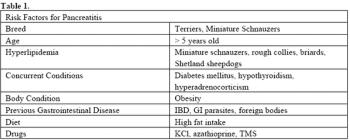
Pancreatitis, either acute or chronic, is a significant clinical problem in both dogs and cats.
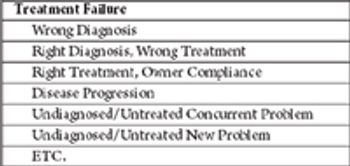
Dysautonomia is a neuropathy of unknown etiology that affects all aspects of the autonomic nervous system.
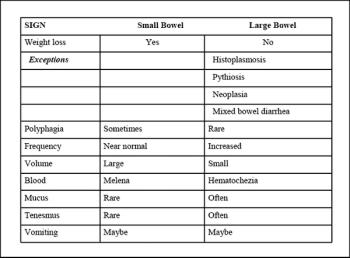
Inflammatory bowel disease is signified by gastrointestinal signs over 3 weeks duration with incomplete response to dietary trials and anthelminthics, histologic lesions of mucosal inflammation on biopsy and clinical response to immunomodulatory therapies.
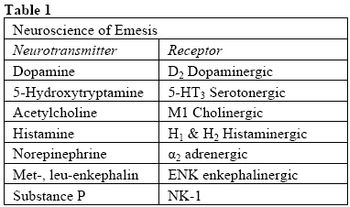
The clinical pharmacology of emesis and anti-emetics is dictated by the neurochemistry of the vomiting (emetic) center as well as the various afferent (input) and efferent (outflow) pathways involved in the act of emesis.












